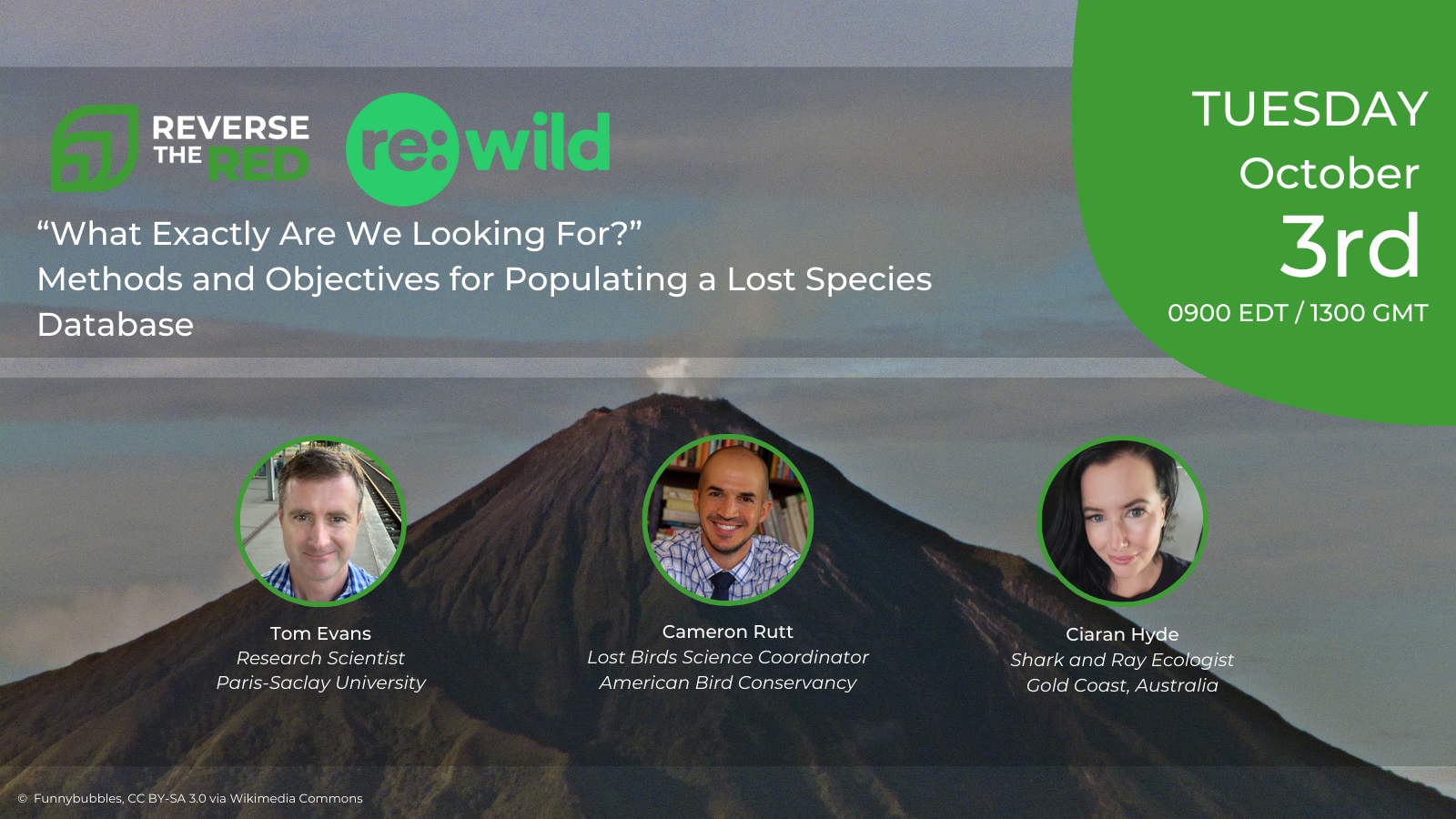Join us for the next webinar in our technical series on Lost Species in partnership with Re:wild!
High rates of species extinction are a defining characteristic of the Anthropocene. Many species are predicted to go extinct in the coming decades. Identifying those species at risk and protecting them is a global conservation priority. However, many imperiled species are ‘lost’ – they have not been observed in the wild by scientists for decades. Implementing effective conservation for these species is therefore challenging; indeed, we do not even know whether they still exist.
Finding lost species is therefore a conservation priority. Rediscoveries offer inspiration for future conservation action, they inform conservation efforts to protect threatened species, and they improve the accuracy of databases such as the IUCN Red List which may be used for strategic conservation planning.
Our panelists will discuss key questions about the search for lost species and the methods and objectives for populating a lost species database.
Tom Evans (Research Scientist, Paris-Saclay University)
What factors influence the rediscovery of lost tetrapod species? In this study, through a collaboration with the IUCN and Re:wild, we compiled a database of lost and rediscovered tetrapod species. We used this database to improve our understanding of the distribution of these species, and of the factors that may influence rediscovery.
Cameron Rutt (Lost Birds Science Coordinator, American Bird Conservancy)
How can we accurately and comprehensively identify lost species? The answer to this thorny question will depend upon which taxonomic group is being assessed.
Ciaran Hyde (Shark and Ray Ecologist, Gold Coast, Australia)
Sharks and rays at risk: identifying knowledge gaps to inform and prioritise conservation. The correlation between a species having limited available research and the likelihood of it being lost, possibly extinct, is a significant concern.
Please, stay tuned at www.reversethered.org for more information
You can watch the recordings here if you missed the previous Reverse the Red webinars.
Please, stay tuned at www.reversethered.org for more information

